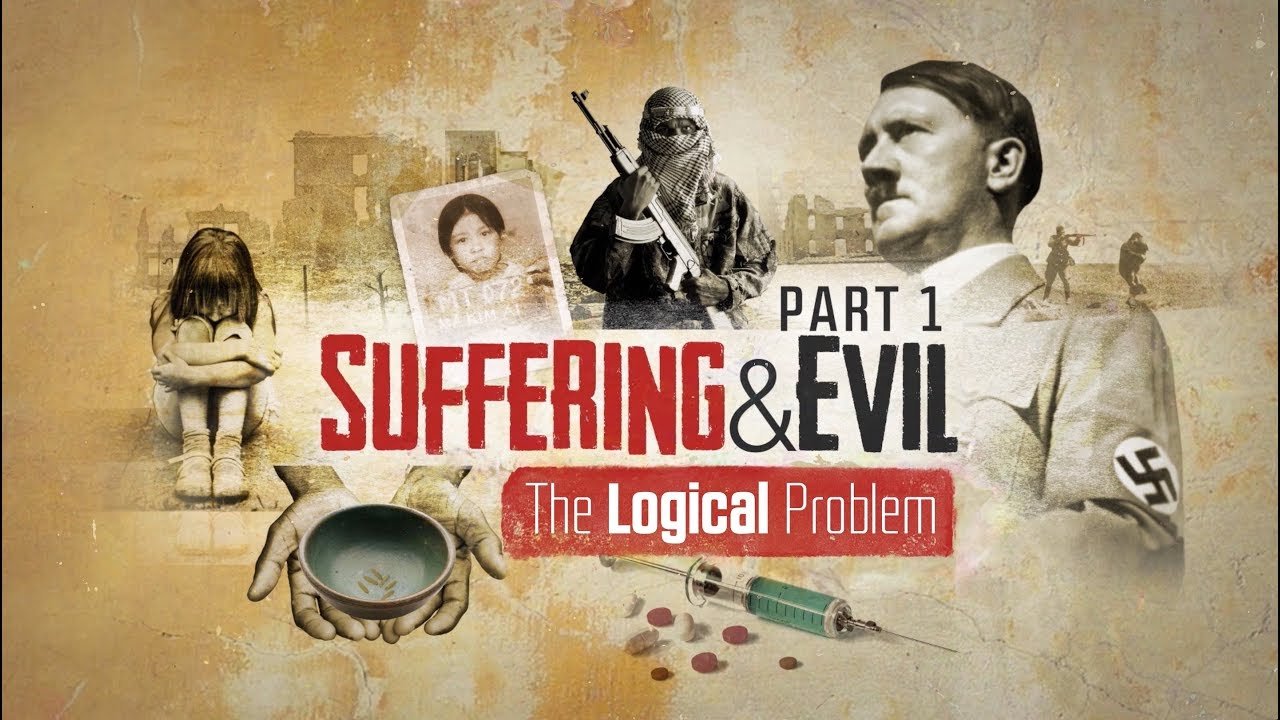In part one, we looked at the logical version of the problem of suffering and evil.This argument attempts to show that since suffering and evil exist, it is logically impossible for God to exist, and we explained why even atheist philosophers admit that this argument fails. But wait. It may still be argued
That while it’s logically possible that God and suffering both exist, is far from likely. There’s just so much pointless suffering, it seems improbable that God could have good reasons for permitting it. This is the probability version of the problem. Suffering provides empirical evidence
That God’s existence is not impossible, just highly unlikely. Is this a good argument? Consider three points. First, we are not in a position to say with any confidence that God probably lacks reasons for allowing the suffering in the world. The problem is that we’re limited in space and time, and in
Intelligence and insight. God, on the other hand, sees every detail of history from beginning to end, and orders it through people’s free decisions and actions in order to achieve his purposes. God may have to allow a great deal of suffering along the way. Suffering which appears pointless within our limited scope of
Understanding may be seen to have been justly permitted by God within his wider framework. Sometimes what we experience makes no sense until we gain a wider perspective and see the big picture designed by the Creator. Here’s the second point. Relative to the full scope of the evidence, God’s
Existence may well be probable. You see, probabilities are always relative to background information. For example, if we consider only how much this man weighs, we would say it’s highly improbable that he’s a world-class athlete. But when we’re willing to consider new information, that he’s a professional sumo wrestler and
The world champion, we quickly revise our view. In the same way, when the atheist claims that God’s existence is improbable, we should ask, improbable relative to what background information? If we consider only the suffering in the world, then God’s existence may very well appear to be improbable, but if we’re
Willing to look at the full scope of background information to take into account the powerful arguments for God’s existence, we may come to a very different conclusion. The third point is Christianity entails doctrines that increase the probability of the coexistence of God and suffering.
Consider four of these. First, the chief purpose of life is not happiness. People often assume that if God exists, his role is to create a comfortable environment for his human pets. They think the ultimate goal of our lives on earth is happiness, and therefore, God is obligated to keep us happy.
However, Christianity presents a radically different view, that the purpose of life is to know God. This alone brings true, lasting fulfillment. Suffering can bring about a deeper, more intimate knowledge of God either on the part of the one who’s suffering or those around him. The whole point of human history is
That God, having given us free will, is drawing as many people as he can into his unending Kingdom. Suffering is one of the ways God can draw people freely to himself. In fact, countries that have endured the most hardship often show the
Highest growth rate for Christianity. God whispers to us in our pleasures, speaks in our consciences, but shouts in our pains. It is his megaphone to rouse a deaf world. Second, mankind is in a state of rebellion against God and His purpose. Terrible human evils are testimony to
Man’s depravity, a consequence of his alienation from God. The Christian isn’t surprised at moral evil in the world; on the contrary, he expects it. The third doctrine states that God’s purpose is not restricted to this life, but spills over beyond the grave into eternal life. This world is just the
Beginning, the entry way to an unimaginable, never-ending life beyond death’s door. Paul, who wrote much of the New Testament, underwent afflictions, hardships, calamities, beatings, imprisonments, hunger; yet he wrote, we do not lose heart, for this slight momentary affliction is preparing us for
An eternal weight of glory beyond all comparison, because we look not to the things that are seen, but to the things that are unseen, for the things that are seen are transient, but the things that are unseen are eternal. Paul understood
That life on earth, and whatever suffering it holds for each of us, is temporary. Our pain will not endure forever, but our lives with God will. Paul was not belittling the plight of those who suffer horribly in this life. Indeed,
He was one of them; but he saw that those sufferings will be overwhelmed forever by the ocean of joy that God will give to those who will freely receive it. And the fourth doctrine is this: the knowledge of God is an incomparable good. Knowing God
Is the ultimate fulfillment of human existence, an infinite good. Thus, the person who knows God, no matter how much he has suffered, can still say God is good to me. So if Christianity is true, it’s not at all improbable that suffering and evil should exist. In summary, for all these
Reasons, the probability version of the problem of evil is no more successful than the logical version. As a purely intellectual problem, then, the problem of evil does not disprove God’s existence. But even if those intellectual arguments fail, the emotional problem of suffering and evil
Remains very powerful. If you have suffered deeply, or if you’ve watched someone you love go to intense pain, you may be thinking, so what is God exists? Why would I want to respond to him or worship him? I feel cold and empty, and
Want nothing to do with him. You’re not alone. God knows your name; he knows who you are and what you’re going through. God promises to be with you through your suffering. He can give you the strength to endure. Jesus Christ also suffered;
Although he was innocent, he was tortured and sentenced to death.His suffering had a purpose: to provide you and me the life-giving connection to God. Not only does God exist, but he loves you. He seeks after you, he offers you hope, and in time, he will make all things new.
He will wipe every tear from their eyes. There will be no more death, or mourning, crying, or pain, for the old order of things has passed away.
#Suffering #Evil #Probability #Version




